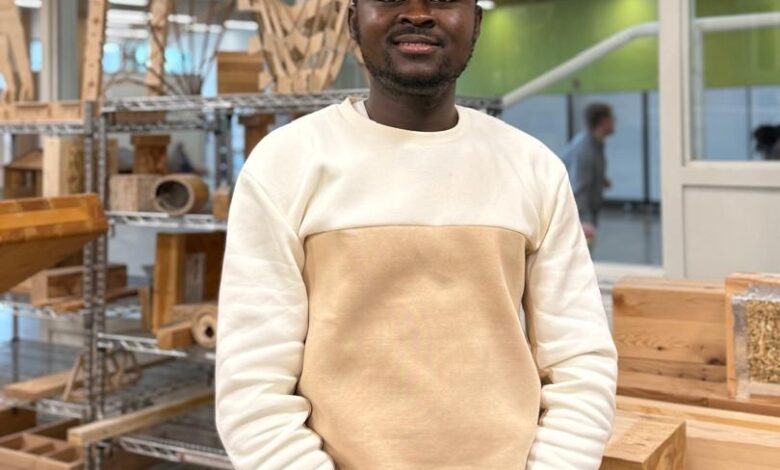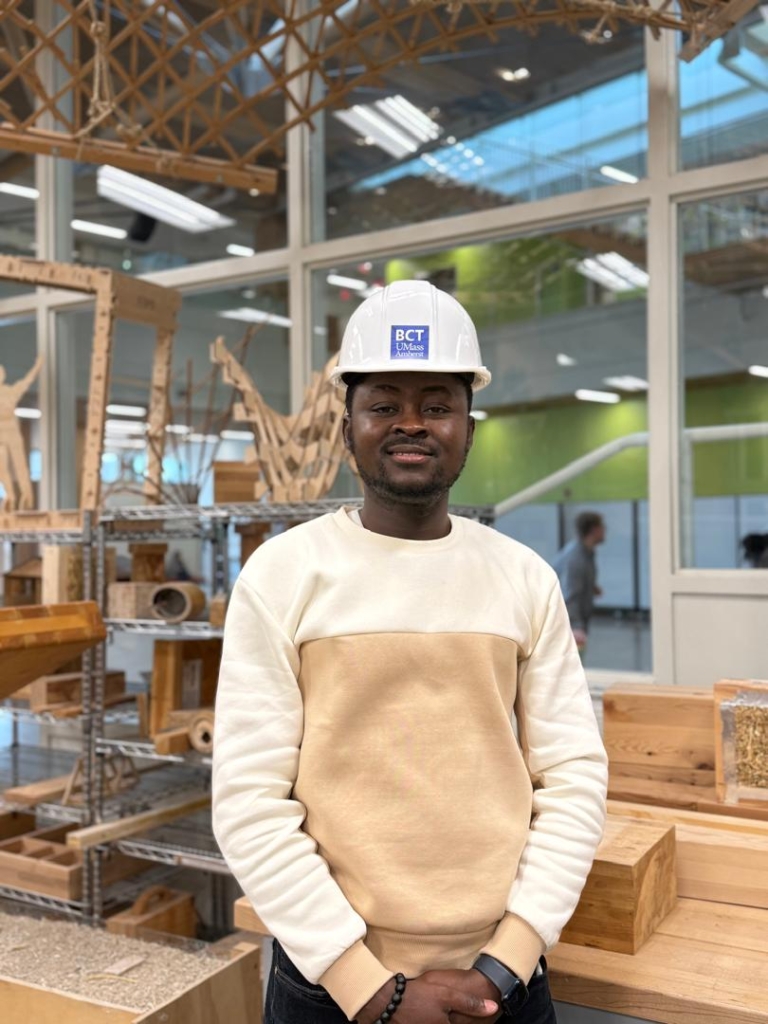A PhD journey of a young Ghanaian Engineer in the USA


I first met Ukasha in 2016 during a volunteer event, and since then, we’ve developed a close friendship and have collaborated on various projects, including organising multiple youth events.
Ukasha grew up in the small farming town of Atebubu, located in the Bono East Region, approximately 400 km from the capital, Accra. As the son of a foreman, he aspired to pursue an education, become an engineer, and make a positive impact in his community.
Although his journey was challenging and at times seemed impossible, his perseverance and hard work are turning that dream into a reality.
When he began his undergraduate studies, I noticed how he consistently went above and beyond, challenging himself by attending seminars, leadership training, and extra classes. At that time, I was also a journalism student in Kumasi, so we met regularly with our friends.
To summarise his perseverance, I would say, for Ukasha, a curve in the road is not the end unless one fails to make the turn.
Ukasha is now a civil engineer and a current PhD student at the University of Massachusetts Amherst in the United States. He began his education in Atebubu, completing both primary and secondary school there.
In 2016, with the support of his hardworking parents, he moved to Accra and enrolled at KAAF University College, where he earned a Bachelor of Science in Civil Engineering and graduated in 2019.
After graduation, he worked with the Ghana Highway Authority as a civil design engineer, contributing to numerous projects, including the Tema Motorway Interchange and the Offankor-Pokuase road project in Accra.
His early interest in engineering stemmed from his father’s work in construction. During his undergraduate years, he began exploring sustainability and sustainable materials in civil engineering.
As part of his research, he focused on using plastic bottles as a replacement for geosynthetic materials in conjunction with beach sand for construction.
He discovered that Ghana imports millions of plastic bottles, with over 50% ending up in landfills or rivers as waste, while only a small percentage is recycled.
After earning his bachelor’s degree, he joined the Ghana Highway Authority as an Assistant Engineer, gaining hands-on experience in materials testing, geometric design, and topographic surveys for road projects.
Later, he advanced to site and planning roles with Grumah Twins Company Ltd., Sawer Nanor & Sons, and JMC Projects India Ltd., where he supervised construction activities, managed design revisions, and coordinated large-scale projects, including the Tamale–Walewale Road (83 km) and a nine-story hospital building.
These positions strengthened his skills in project management, structural design, and stakeholder communication.
To deepen his technical expertise, he pursued a Master of Science in Civil Engineering at Michigan Technological University, specialising in Sustainable Pavement Design and Construction, and earned a graduate certificate in the same field.
There, he gained hands-on experience in material testing and life-cycle analysis, which sparked his interest in low-carbon alternatives. At Michigan Technological University, he interned in the Asphalt Lab, where he performed sieve analysis, mix design, and asphalt performance testing to develop sustainable pavement solutions. Later, at Saint-Gobain Ceramics & Plastics (CertainTeed), he contributed to the optimisation of off-site construction systems, CAD automation, and hygrothermal analysis for climate-specific building panels.
He is currently pursuing a PhD in Advanced Building Technologies at the University of Massachusetts Amherst, focusing on biobased materials such as hemp, bamboo, and straw for insulation and structural applications. His research explores innovative solutions, including silica-coated hemp shivs and curved cross-laminated timber, bridging material science and sustainability.
What People say about him
Ukasha has built a meaningful network of academics and professionals in his field and beyond, making him a trusted and reliable figure.
“Mr. Mohammed has earned a reputation as a deeply insightful scientific researcher,” said Prof. Zack Fredin, a faculty member in the Department of Civil, Environmental, and Geospatial Engineering at Michigan Technological University.
“Mr. Mohammed is an exceptional civil engineer dedicated to innovating sustainable materials for pavement infrastructure and construction. His efforts to reduce environmental impact and enhance durability align perfectly with the strategic interests of the United States,” stated Dr Zhanping You, a distinguished professor of Transportation Engineering and Materials in the Department of Civil and Environmental Engineering at Michigan Technological University.
“Mr. Mohammed is an outstanding Ph.D. student on my research team, demonstrating great knowledge and dedication to the development of sustainable materials for construction,” said Dr Munkaila Musah, an assistant professor specialising in Sustainable Bio-based Materials and Advanced Building Technologies at the University of Massachusetts.
His Long-term Vision
Ukasha envisions a future in which bio-based materials move from niche applications to become essential components of civil engineering. As the construction industry faces increasing pressure to decarbonise, materials such as hemp, bamboo, and straw will be crucial for reducing embodied carbon and improving building performance.
His current research focuses on scaling up hemp-based insulation systems enhanced with silica coatings, as well as exploring straw bales for insulation and curved cross-laminated timber for structural efficiency. This work effectively connects sustainability with advanced design. Beyond his research, he hopes to see greater collaboration between academia and industry, integrate sustainability into engineering curricula, incentivise the adoption of green materials through policy, and create robust supply chains for renewable resources.
Reflecting on my journey, I have learned that resilience and curiosity are essential for growth in engineering. My experiences range from working on large-scale infrastructure projects in Ghana to pursuing advanced research in biobased materials. Each challenge has been a stepping stone toward success.
Ukasha’s remarkable efforts have been recognised through prestigious honours, including the Spaulding-Smith Fellowship at UMass Amherst. This fellowship is one of the university’s most competitive awards for outstanding doctoral students in STEM fields from underrepresented groups.
It is named after Major Franklin Spaulding, the first African American to earn a doctorate at UMass, and Elizabeth Hight Smith, the first woman to receive a graduate degree there.
The fellowship provides significant financial support, mentoring, and professional development opportunities to promote academic excellence and leadership. Receiving this award affirmed Ukasha’s commitment to advancing sustainability and diversity in engineering.
DISCLAIMER: The Views, Comments, Opinions, Contributions and Statements made by Readers and Contributors on this platform do not necessarily represent the views or policy of Multimedia Group Limited.
DISCLAIMER: The Views, Comments, Opinions, Contributions and Statements made by Readers and Contributors on this platform do not necessarily represent the views or policy of Multimedia Group Limited.
Source link





